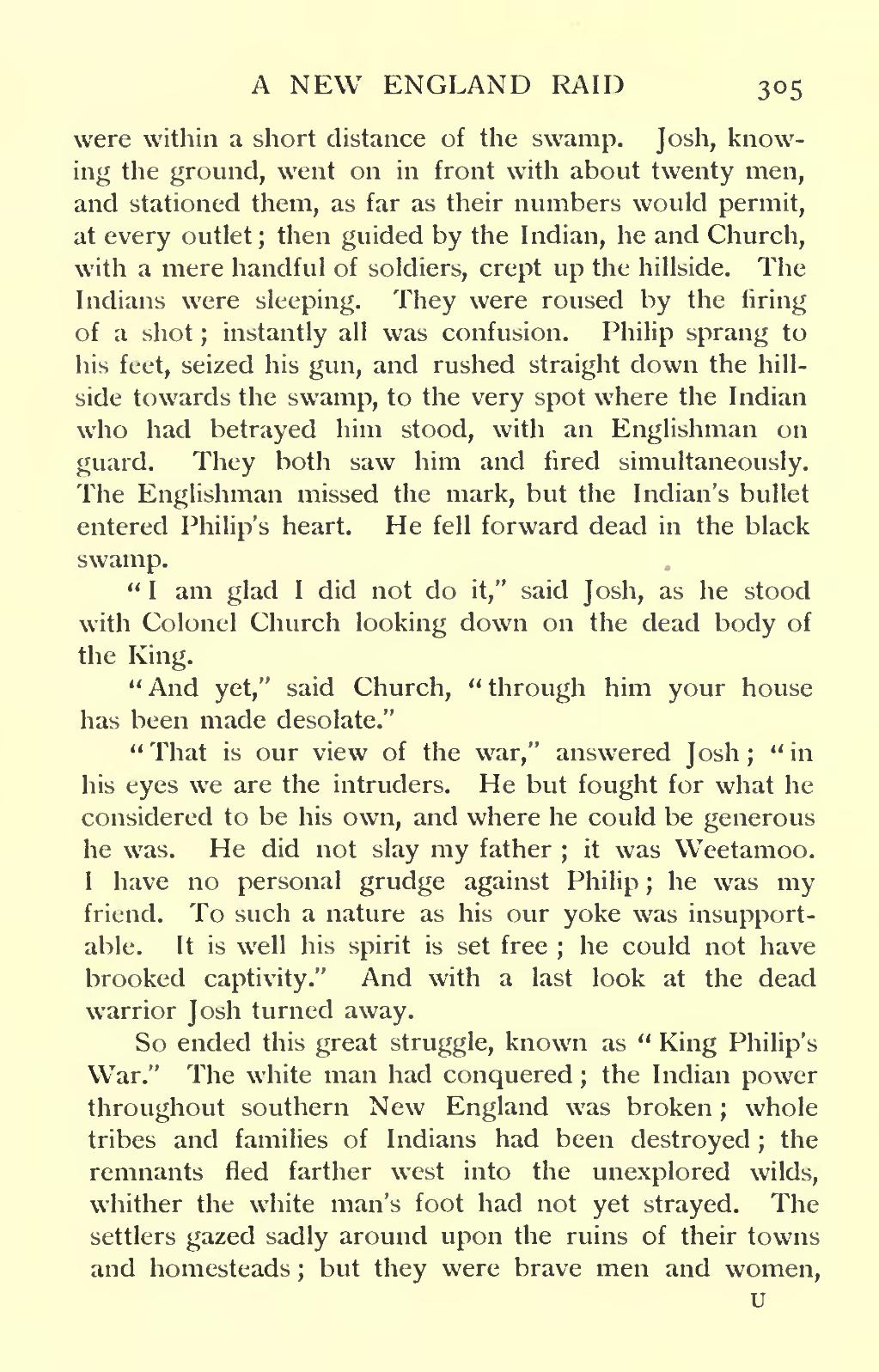were within a short distance of the swamp. Josh, knowing the ground, went on in front with about twenty men, and stationed them, as far as their numbers would permit, at every outlet; then guided by the Indian, he and Church, with a mere handful of soldiers, crept up the hillside. The Indians were sleeping. They were roused by the firing of a shot; instantly all was confusion. Philip sprang to his feet, seized his gun, and rushed straight down the hillside towards the swamp, to the very spot where the Indian who had betrayed him stood, with an Englishman on guard. They both saw him and fired simultaneously. The Englishman missed the mark, but the Indian's bullet entered Philip's heart. He fell forward dead in the black swamp.
"I am glad I did not do it," said Josh, as he stood with Colonel Church looking down on the dead body of the King.
"And yet," said Church, "through him your house has been made desolate."
"That is our view of the war," answered Josh; "in his eyes we are the intruders. He but fought for what he considered to be his own, and where he could be generous he was. He did not slay my father; it was Weetamoo. I have no personal grudge against Philip; he was my friend. To such a nature as his our yoke was insupportable. It is well his spirit is set free; he could not have brooked captivity." And with a last look at the dead warrior Josh turned away.
So ended this great struggle, known as "King Philip's War." The white man had conquered; the Indian power throughout southern New England was broken; whole tribes and families of Indians had been destroyed; the remnants fled farther west into the unexplored wilds, whither the white man's foot had not yet strayed. The settlers gazed sadly around upon the ruins of their towns and homesteads; but they were brave men and women,
U
